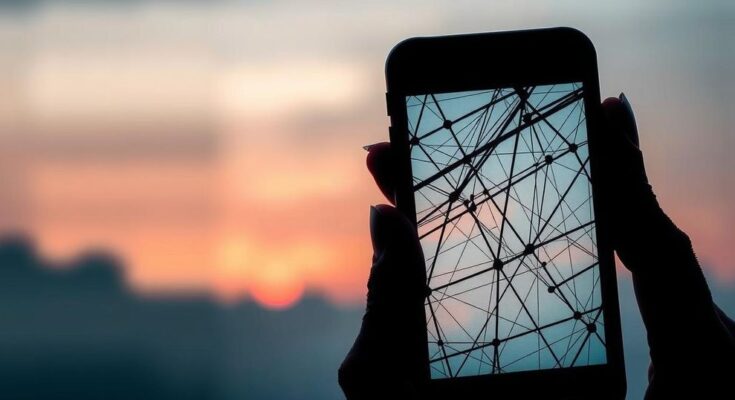South Sudan has suspended social media for 30 days due to riots following violent incidents involving South Sudanese nationals in Sudan. The ban targets platforms like Facebook and TikTok, affecting major mobile operators. The decision responds to public turmoil and aims to manage growing anger amidst claims of military involvement in the killings.
In response to unrest stemming from violent incidents in Sudan, South Sudanese authorities have placed a suspension on social media access for an initial period of 30 days. This decision follows the emergence of videos portraying the alleged killings of South Sudanese nationals in El Gezira state, which incited riots and retaliatory actions across the nation. Napoleon Adok, the Director General of the National Communications Authority, informed internet providers of this measure through a letter, stating that the upheaval in neighboring Sudan has subjected South Sudanese citizens to extreme violence via social media.
Beginning at midnight on Wednesday, mobile network subscribers from MTN South Sudan and Zain will find platforms including Facebook and TikTok inaccessible for up to 90 days. Reports from Juba confirmed that access to these platforms was effectively denied following the announcement. Last week, at least 16 Sudanese individuals were reported dead due to violent clashes in Juba and adjacent regions, as local youths expressed their anger by looting enterprises owned by Sudanese nationals and setting homes ablaze.
The riots are rooted in the belief that the Sudanese military and its affiliates are complicit in the recent killings in El Gezira. The Sudanese armed forces have decried the situation, labeling the violence as “individual violations” rather than systemic issues. Amidst this turmoil, prominent South Sudanese artist Isaac Anthony Lumori, known as Mc Lumoex, expressed concern over the impact of the internet suspension on his artistic endeavors and urged the government to pursue diplomatic resolutions involving the Sudanese authorities to prevent further loss of life.
The recent suspension of social media platforms in South Sudan arises from escalating tensions linked to violence in Sudan’s El Gezira region. Videos depicting these events triggered significant unrest in South Sudan, prompting authorities to act to control information dissemination. The reactions in South Sudan demonstrate the delicate relationship between social media, public sentiment, and regional conflicts, underscoring the government’s challenges in maintaining stability while managing information flow during crises.
In summary, South Sudan’s suspension of social media access for 30 days is a direct reaction to violent events in Sudan that have spilled over into its own territories, inciting riots and revenge actions. As authorities seek to quell unrest, the implications for communication and public discourse remain significant, raising concerns among citizens and artists reliant on these platforms. Collaborative diplomatic efforts with Sudan may be essential to mitigate future violence and address underlying tensions.
Original Source: www.cnn.com




